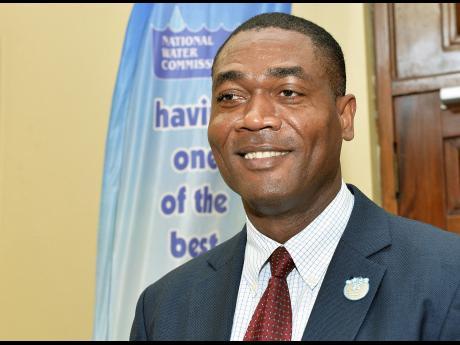NWC urges developers to consult agency before starting projects
The National Water Commission (NWC) is urging developers to consult the commission in order to get information about existing water and sewerage infrastructure in certain areas before starting construction.
In making his opening remark during the recent Virtual Construction Industry Forum that was hosted by the NWC, the commission's president, Mark Barnett, explained that the water provider plays a major role in developments within Jamaica.
Therefore, he said that it is important that the commission is consulted as soon as there are development plans so that the necessary information can be shared with members of the construction industry.
“At the end of the day, we want to ensure that we all have a fulsome understanding of how the process works and how infrastructure development is necessary in supporting the types of development that we are seeing,” Barnett said.
Similar sentiments were shared by Garth Jackson, Vice President - Engineering and Capital Projects at the NWC.
“We need to engage each other. We need to ensure that we have development plans in place. We need to ensure that the Housing Agency [of Jamaica] and all the persons involved in development, as early as possible, indicate where exactly they propose to do something,” he said during the forum.
“Yes, the NWC does have plans for particular areas, but at the same time, the NWC can plan so far. If we are to go further then we really need to be supportive of each other.”
As part of his presentation, Ian Bennett, Engineering Design Manager at NWC, explained that developers must provide high-quality submissions so that the commission can inform them of where water and sewerage infrastructure is available and provide approval for their developments.
To aid in the approval process, Bennett said that the NWC needs to view the site plans, which should be done by a commissioned land surveyor; the engineer reports must be stamped and signed by registered engineers in their respective disciplines; suitable location maps and drawings must be submitted; intended demand must be stated; and suitable contact information must be provided.
On average, Bennett said that the NWC receives about 30,000 applications per year, but only 15,000 are approved.
He explained that these approvals are given “based on our capacity and what is required for us to do.”
Like his colleagues, Bennett urged stakeholders in the construction industry to make contact with the NWC before development begins so that they can be told the level of infrastructure that exists in particular areas and what the NWC's plans are.
“You cannot plan without knowing where the resources are coming from,” Bennett said.
“If we don't do things correctly from now, in the next couple of years, we are going to have troubles and difficulties in different areas with regards to our water and sewerage services. We do need to ensure that that service from the National Water Commission is not deemed as a secondary service. It is actually a critical service in the development of a nation.”
Follow The Gleaner on Twitter and Instagram @JamaicaGleaner and on Facebook @GleanerJamaica. Send us a message on WhatsApp at 1-876-499-0169 or email us at onlinefeedback@gleanerjm.com or editors@gleanerjm.com.

